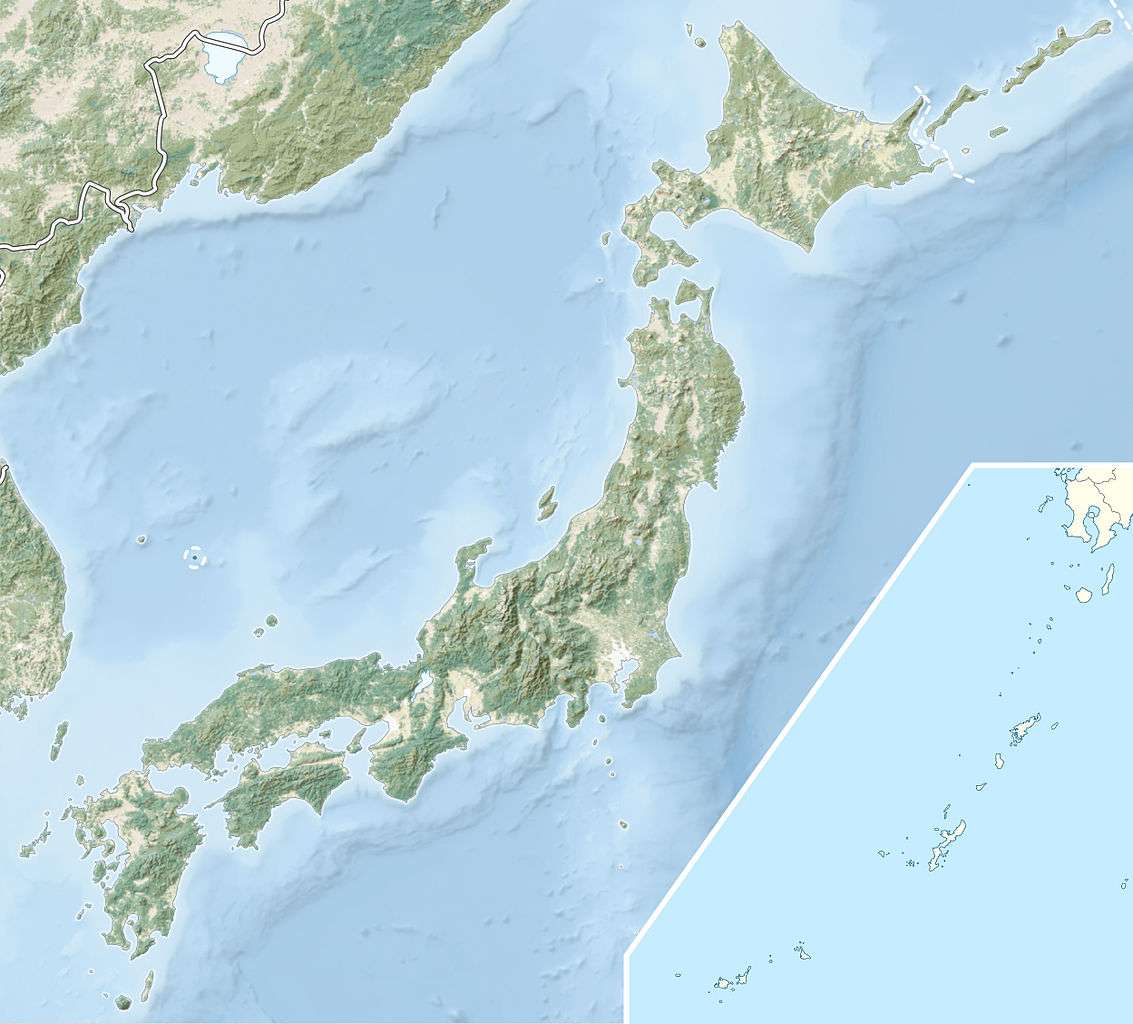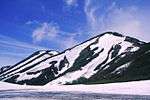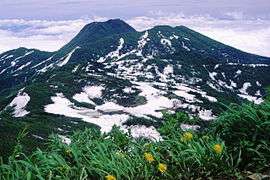Mount Hiuchi
| Mount Hiuchi | |
|---|---|
| 火打山 | |
 Mount Hiuchi seen from garden of Tengu | |
| Highest point | |
| Elevation | 2,462 m (8,077 ft) [1] |
| Prominence | 1,637 m (5,371 ft) [2] |
| Listing |
Ultra List of mountains in Japan 100 Famous Japanese Mountains |
| Coordinates | 36°55′22″N 138°04′05″E / 36.92278°N 138.06806°ECoordinates: 36°55′22″N 138°04′05″E / 36.92278°N 138.06806°E [3] |
| Naming | |
| Pronunciation | [hiuchiyama] |
| Geography | |
 Mount Hiuchi Japan | |
| Location |
Itoigawa and Myōkō, Niigata Prefecture, Japan |
| Parent range | Kubiki Mountains |
| Topo map |
Geospatial Information Authority 25000:1 湯川内[3] 50000:1 妙高山 |
| Climbing | |
| Easiest route | Hike |
Mount Hiuchi (火打山 Hiuchi-yama) is one of the 100 Famous Japanese Mountains,[4] reaching the height of 2,462 m (8,077 ft). It is situated in Japan's Kubiki Mountains in Niigata Prefecture. It was specified for Jōshin'etsu Kōgen National Park on July 10, 1956.[5]
Outline
The surrounding is a Snow country (Japan). This mountain is famous for many Alpine plants on the upper part of the mountains above the tree line. Siberian Dwarf Pine can be see in the place and Rock Ptarmigan lives. This mountain is selected to " 100 famous Mountains with flowers" by Sumie Tanaka. She introduced Primula cuneifolia Ledeb. var. hakusanensis Makino of Primula as a represented flower. There are several climbing routes to the top of the mountain. There are Kōya pond and Kōya Mountain hut with campground in the southeast in the top of the mountain.
Scenery of Mount Hiuchi
 |
 |
 |
 |
| Mount Hiuchi seen from garden of Tengu |
Kōya pond and Kōya Mountain hut |
Mount Myōkō seen from Mount Hiuchi |
Siberian Dwarf Pine and Rock Ptarmigan |
See also
| Wikimedia Commons has media related to Mount Hiuchi (Niigata). |
- Jōshin'etsu Kōgen National Park
- List of mountains in Japan
- List of Ultras of Japan
- 100 Famous Japanese Mountains
References
- ↑ "Altitude of the main mountain in Japan (in Niigata prefecture)" (in Japanese). Geospatial Information Authority of Japan. Retrieved April 2, 2011.
- ↑ "Japan Ultra-Prominences". Peaklist.org. Retrieved 22 March 2013.
- 1 2 "Map inspection service" (in Japanese). Geospatial Information Authority of Japan,(湯川内-妙高山-高田). Retrieved 2 April 2011.
- ↑ 100 Famous Japanese Mountains. Kyūya Fukada (in Japanese). The Asahi Shimbun Company. July 1982. pp. 137–140. ISBN 4-02-260871-4.
- ↑ "Jōshin'etsu Kōgen National Park" (in Japanese). Ministry of the Environment (Japan). Retrieved April 2, 2011.